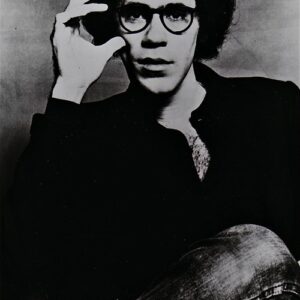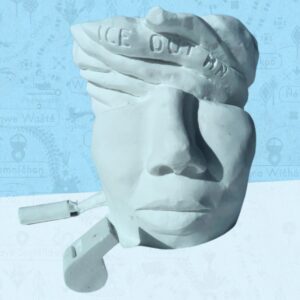
Jhumpa Lahiri: On Language and the Longing for Home
Part Two of Lahiri's Conversation with Paul Holdengraber
In part two of Jhumpa Lahiri’s conversation with Paul Holdengraber, the two discuss the elusiveness of language, nostalgia, and being the child of immigrants. Listen to part one here.
Jhumpa Lahiri on authors and authority…
Having power, having authority, as a writer, what does that mean? I ask this question in my book: Can one call oneself an author without feeling authoritative? Can one feel authoritative without possessing something—possessing a language in my case? Which I don’t, you know—I don’t possess Italian, and that’s the whole game of it. That’s the beauty of it and the fascination of it and the frustration of it all.
Jhumpa Lahiri on renunciation…
Liberty comes from renunciation; we must renounce on a very deep level to feel that. I feel that this journey, this Italian journey that I’ve made, as a person, as a writer, is really about finding freedom. In the way that so many writers have found freedom: by stepping away from the place, the people, the language, the culture that they knew, in search of something different, of their own making. Without the weight, and yet, you carry sort of the best of it with you.
Jhumpa Lahiri on nostalgia…
I certainly think I’m replaying something in my own family’s history. I am the child of parents, especially of a mother, who felt and continues to feel acute nostalgia. Place—for her roots, for her home, for her tribe, for her people, for the trees she would see and the birds she would hear. Everything, everything about that life, was missing here. And I recently wrote a short piece about this notion of nostalgia, and what I realized in writing the piece was that throughout my childhood, my mother’s nostalgia was a rival. It was a shadow over my life because I couldn’t participate in it; that world had nothing to do with me. And it caused a lot of anxiety in me, in terms of who I was, in terms of—why could I not be bound up in what she wanted so desperately? Why did I, rather, represent the other world—the world of exile and of coldness, the world of nobody ever coming over without an invitation and the other million things about the United States that caused her to suffer?
Jhumpa Lahiri on being a child of immigrants…
I would see what would happen to my mother when she got off the airplane in Calcutta. I would see the almost instant transformation in her—in her face, in her body, in the way her voice was. Everything was suddenly dramatically different. And I saw different people; I saw a different set of parents in Calcutta. They were not the parents who raised me in America. They were completely different people; they were laughing, they were joking, they had cousins and brothers and sisters, and they were completely relaxed. Everything was different, and I would have been different if I had been raised by those people.



















